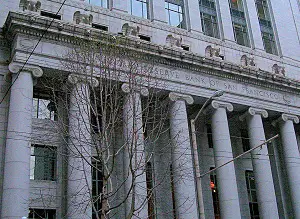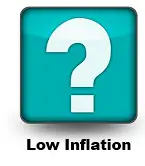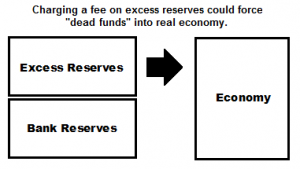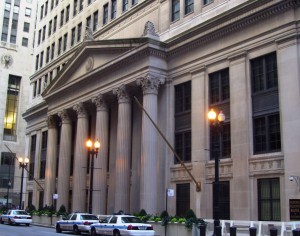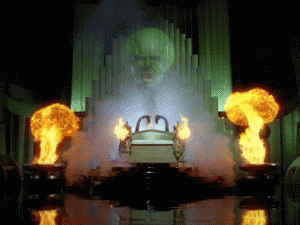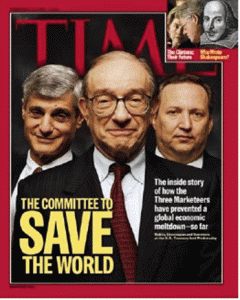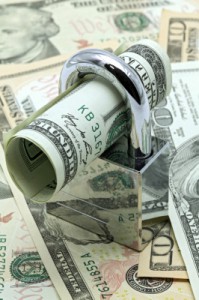The Federal Reserve The Federal Reserve serves as the Central Bank of the United States, and whether you realize it or not, it plays an active role in the lives of every American. It makes decisions about monetary policy and interest rates that have a direct impact on the market and an indirect impact on everyone. The FED uses inflation targets to determine how much they can devalue (inflate) the currency. Many people believe that they created a massive money printing scheme cryptically called "Quantitative Easing"since QE1 converted almost worthless mortgage backed securities into currency. The Fed regularly issues statements about how inflation isn't really as bad as everyone says it … [Read more...]
How “Excess Reserves” and the Money Multiplier Could Trigger Inflation
Banks have $2.5 trillion parked in "excess reserves". This is money on deposit with the FED. The FED pays a miniscule amount of interest on these reserves but the banks are willing to loan it to the FED because it is easy no risk income. But it is also the reason that the money multiplier is falling! And when the money multiplier is falling the FED has a very hard time increasing the money supply. So if the FED really wants to increase the money supply all it has to do is decrease the interest rate it pays on excess reserves and the banks will find some place else to deploy it. Which could trigger massive inflation. ~Tim McMahon,editor A Fed Policy Change That Will Increase the Gold … [Read more...]
Inflation Expectations and the FED
As inflation expectations rise the FED has less and less "wiggle room" to stimulate the economy. But how do you measure "inflation expectations"? In today's article, Chris Ciovacco will show us. ~Tim McMahon, editor Low Inflation Leaves Fed’s No Taper Door Open Fed Lost Control In 2008 In early December, we used Japan as an extreme example of why central banks are terrified of allowing their respective economies to slip into a deflationary spiral. Do the same concepts apply to the United States? They do. The federal government offers standard Treasury bonds (IEF) and Treasuries that provide some protection against inflation (TIP). The law of supply and demand tells us that when demand … [Read more...]
FED Looks for New Ways to Crank Up Money Supply
With all the talk about "Tapering" you'd think the FED was actually considering reducing it's money pumping. But in actuality that is not it at all. The FED is afraid that it is creating a a bubble in the stock market so it is looking for ways to continue its pumping but shift it enough so that the money goes somewhere besides just to the stock market. In other words, it is still worried about the economy and realizes that it is doing more harm than good but feels trapped, so it is looking for new ways that might work better. If the FED can figure out how to free up the log jam of "excess reserves" held by the banks, liquidity could be sloshing around the economy before you know it and … [Read more...]
Pushing on a String, Velocity of Money and Money Multiplier Conspire Against the FED
Under certain circumstances such as high national indebtedness, fear of bad economic times or when interest rates approach zero, monetary policy becomes ineffective in enticing consumers into spending more money. Economists refer to this as "Pushing on a String" because if the basic demand doesn't exist to induce people to spend money, it can't be forced through monetary policy. Prime examples of this are during the Great Depression in the United States and in Japan since the 1990s. And as Lacy Hunt explains we are once again facing this problem in the United States since 2008. ~Tim McMahon, editor Federal Reserve Policy Failures Are Mounting By Lacy H. Hunt, Ph.D., Economist The Fed's … [Read more...]
Taper Caper: The Consequences of Institutionalizing Q.E.
By Ben Hunt, Ph.D. Previously, we discussed the Bureaucratic Capture of the FED and the institutionalizing of QE. QE is adrenaline delivered via IV drip ... a therapeutic, constant effort to maintain a certain quality of economic life. This may or may not be a positive development for Wall Street, depending on where you sit. I would argue that it’s a negative development for most individual and institutional investors. But it is music to the ears of every institutional political interest in Washington, regardless of party, and that’s what ultimately grants QE bureaucratic immortality. It is impossible to overestimate the political inertia that exists within and around these massive … [Read more...]
Taper Caper: Has the FED Been “Politicized” or “Captured”?
By Ben Hunt, Ph.D. Two things happened this week with the FOMC announcement and subsequent press conferences by Bernanke, Bullard, etc. – one procedural and one structural. The procedural event was the intentional injection of ambiguity into Fed communications. As I’ll describe below, this is an even greater policy mistake than the initial June FOMC meeting when “tapering” first entered our collective vocabulary. The structural event ... which is far more important, far more long-lasting, and just plain sad ... is the culmination of the bureaucratic capture of the Federal Reserve, not by the banking industry which it regulates, but by academic economists and acolytes of government … [Read more...]
The Mystery of the Missing Taper
Taper Caper: Conspiracy Theory Last Thursday, prior to the FOMC announcement, I was invited to come sit with another group of friends and traders everyone was sure there would be some type of tapering. That message had been clearly communicated to the markets. When the announcement came, the telephones went off and everyone erupted with various forms of surprise. I fully admit to being speechless. I kept waiting for some kind of explanation, and none came. The more we talked about it and the more I thought about it later, the more convinced I became that this was one of the more ham-handed policy announcements from the Fed in a very long time. Why would you go to the trouble of getting the … [Read more...]
How The Federal Reserve is Making Us Poorer
In today's article Lacy Hunt looks at the Federal Reserve's economic model and a few important questions regarding their policy, including, "How accurate have the FED's previous predictions been?" and "Has the Fed facilitated errant fiscal policies?" and "Is the Fed relying on an outdated understanding of how the macro-economy works?". He also shows how because of (not in spite of) FED actions, "real income of the vast majority of American households fell" and "worsened the income/wealth divide". In other words the FED has made us poorer. ~Tim McMahon, editor The Federal Reserve (FED) By Lacy H. Hunt, Ph.D., Economist In May 22 testimony to the Joint Economic Committee of Congress, … [Read more...]
The Case of the Disappearing Gold
When I was in the 6th grade (many, many years ago) my class took a field trip to New York City and visited the NY FED. The highlight of the trip for me was a ride down the elevator (or more precisely what was at the bottom. The ride took forever with dozens of kids and one security guard in that tight stuffy space. Anticipation built as we went down what seemed like miles into the earth where the vaults rested on Manhattan bedrock. And what was in those vaults? Gold! Lots of gold! Each vault had a name on it but not people's names, countries names. After all in those days people weren't allowed to own gold. For years now there has been a controversy as to whether our (the U.S.) Gold … [Read more...]

